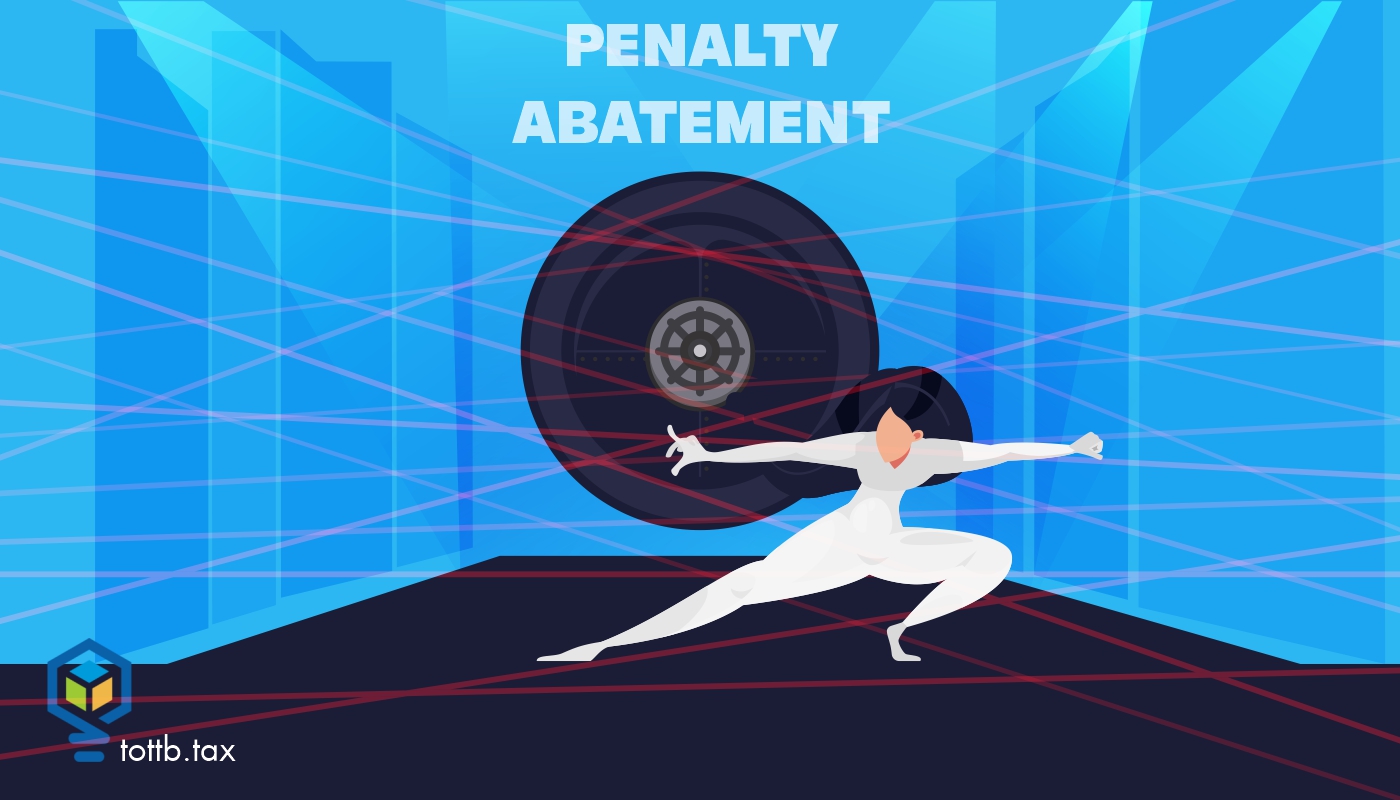UPDATE – 3/8/24: A U.S. District Court judge in the Northern District of Alabama has ruled that the Corporate Transparency Act (CTA) is unconstitutional, potentially placing the Beneficial Ownership Information (BOI) reporting on hold. The judge ruled that the CTA is an unconstitutional exercise of Congress’ powers and granted the plaintiff’s motion for summary judgment. As the ruling deals with plaintiffs in a specific district, small businesses are advised to continue to abide by previous CTA/BOI requirements pending further legal decisions.
Original Article:
Regulatory tsunamis come in batches. By now, for example, most of you have heard about the tax-reporting requirement slated to kick in next year, where the IRS would’ve learned about the income of individual taxpayers who made just $600 on the likes of eBay. That sounded like a looming nightmare — until the IRS suddenly put it off a year two days before Thanksgiving. (Sometimes removing tax regulations without warning creates as much confusion as adding them.)
Small businesses aren’t off the regulatory hook that easily for 2024. Come January 1, a new ownership-reporting requirement begins for millions of American companies. Now’s the time to prepare yourself and your company.
Many Don’t Know
Beginning next year, the U.S. Corporate Transparency Act (CTA) will mandate that many companies – corporations, limited liability companies, limited partnerships and similar entities – must disclose information about their “beneficial owners” to the Financial Crimes Enforcement Network (FinCEN), a bureau within the U.S. Department of the Treasury.[1] The CTA looks to enhance financial transparency and fight money laundering by “bad actors”[2] with such Beneficial Ownership Information (BOI).
All domestic and foreign entities formed or registered to do business in the U.S. must file the BOI report unless they meet conditions of exception. Domestic entities are created by filing with a secretary of state or similar office under the laws of a U.S. state or Indigenous tribe. “Foreign entities” are those formed under the laws of a country outside the U.S. and registered to do business in any U.S. state or tribal jurisdiction.
FinCEN claims the filing will take only a little more than an hour.[3] There’s no fee, but penalties for failure to file can extend to imprisonment. FinCEN estimates the rule will impact some 32.6 million companies next year alone, with millions of new reporting companies formed and registered every year onward.[4]
If you and your business haven’t heard much about this looming requirement, you’re not alone. A recent survey of U.S.-based companies and law and accounting firms showed that although the rule will apply to half the firms in the survey, almost three out of four became aware of the CTA rule only by taking the survey.[5]
Clearly, compliance obligations of this reporting will have a long – and potentially litigious – reach, not to mention the privacy concerns about how to store, protect, and access owners’ data. This all starts this January.
Let’s take questions one at a time.
When’s the Deadline to Report?
Companies created or registered before next January 1 have until Jan. 1, 2025, to file their initial BOI reports with FinCEN; entities created or registered on or after Jan. 1, 2025, have 30 days to file their initial BOI reports.
Right now, companies created or registered in 2024 have 30 days to file their initial reports, but a new rule is afoot to extend that to 90 days.[6] FinCEN’s reasoning: Companies formed next year will need more time to understand reporting requirements. The comment period on the proposed rule closes soon.
It’s logical to expect this extension will take effect but watch developments closely if you have a company you plan to register next year.
Do All Companies Have to Report?
No. Twenty-three types of entities are exempt from submitting BOI reports, but many of the exemptions are for large companies and highly regulated businesses.
For example, the large operating company exemption applies to entities that have more than 20 full-time employees in the U.S., more than $5 million in gross receipts or sales from sources inside the country and an operating presence at a physical office in the U.S.[7]
Other exemptions include certain types of banks and credit unions; some securities brokers and other types of companies registered with the SEC; some companies associated with insurance; and public accounting firms and some utilities, among others.
One reason for these exemptions: The government regulates many of these entities and reports their BOI information already.
What’s a Beneficial Owner?
A beneficial owner is any person who, directly or indirectly, has “substantial control” over a reporting company or owns or controls at least a quarter of the company’s ownership interests. You won’t have to report which category makes someone a beneficial owner.
An individual exercises substantial control over a reporting company if the individual meets any of four general criteria:
- a senior officer;
- has authority to appoint or remove certain officers or a majority of directors of the company;
- an important decision-maker;
- has any other form of substantial control over the company (what FinCEN itself calls a “catch-all” to make sure innovative or flexible corporate restructures are in the reporting).[8]
Companies must identify all individuals who own or control at least 25 percent of the company’s ownership interests. Any of the following may be an ownership interest:
- equity, stock, or voting rights;
- a capital or profit interest;
- convertible instruments;
- options or other non-binding privileges to buy or sell any of the foregoing;
- any other instrument, contract, or other mechanism used to establish ownership.[9]
Examples of direct ways to exercise substantial control are board representation, control of a majority of voting power or voting rights or rights associated with financing or interest, among others. Indirect ways to exercise substantial control include controlling one or more intermediary entities that have substantial control over a company, or through arrangements or financial or business relationships with other individuals or entities acting as nominees.[10]
Your small company may have multiple beneficial owners, such as one beneficial owner who exercises substantial control and a few beneficial owners who own or control at least 25 percent of the ownership interests. A reporting company can also have one beneficial owner who meets both criteria.
No maximum number of beneficial owners must be reported but “FinCEN expects that every reporting company will be substantially controlled by one or more individuals, and therefore that every reporting company will be able to identify and report at least one beneficial owner.”[11]
What Information Requires Reporting?
For the company, the full legal name; any trade name or d/b/a name; the current U.S. address of the principal place of business or, if the company’s principal place of business is not in the U.S., the primary location in the U.S. where the company conducts business. Also needed is the state, tribal, or foreign jurisdiction of formation; the IRS Taxpayer Identification Number (TIN), including an Employer Identification Number, or EIN, or, if a foreign reporting company has not been issued a TIN, a tax identification number from a foreign jurisdiction and the jurisdiction’s name.
Required for each beneficial owner and company applicant (that’s an individual who directly files or is primarily responsible for the filing of the document that creates or registers the company) is the full legal name, date of birth, and current residential street address; unique identifying number and issuing jurisdiction from, and image of, one of a U.S. passport, state driver’s license or ID document issued by a state, local government, or tribe (if an individual has none of these, a foreign passport).
A couple more points:
- If an individual has obtained a FinCEN identifier and provided it to a reporting company, the company may include that identifier instead of the information about the individual.
- Company applicants who form or register a company in the course of their business, such as paralegals, can report the business street address, which doesn’t have to be in the U.S.[12]
And what would a huge new regulation be without special reporting rules?
Owned by exempt entity: You do not need to report information about any beneficial owner whose ownership interests are through one or more entities, all of which are themselves exempt from the reporting company definition. You can instead report the names of the exempt entities.
Minors: You do not need to report information about a beneficial owner who’s a minor child, just the required information about the parent or legal guardian.
Foreign pooled investment vehicle: You do not need to report information about each beneficial owner and company applicant if you formed your company under the laws of a foreign country and would be a reporting company if not for the pooled investment vehicle exemption. You must report one individual who exercises the greatest substantial control over the company; you don’t need to report company applicants.
Applicant reporting: If the reporting company was created or registered before Jan. 1, 2024, you don’t need to report any company applicant information but just specify on the BOI report that the involved parties created or registered the company before Jan. 1, 2024.[13]
Will This Information Be Safe?
Good question – and an ongoing concern for skeptics about the BOI program.
The CTA authorizes FinCEN to disclose BOI under specific circumstances to:
- S. federal, state, local, and tribal government agencies requesting it for specific purposes;
- foreign law enforcement, judges, prosecutors, central authorities, and competent authorities;
- financial institutions using the information for lawful customer due diligence and federal functional regulators and other appropriate agencies in the institutions’ due diligence;
- the U.S. Treasury.
FinCEN would also disclose BOI to federal agencies for security, intelligence, or law-enforcement activity if a FinCEN review finds that justified. Foreign requesters must make their requests for BOI through intermediary federal agencies and meet conditions of treaty or international agreement or trust and would not have direct access to the database.
FinCEN says protecting this information is a top priority. “The … IT system will be cloud-based and will meet the highest Federal Information Security Management Act level,” FinCEN has said, “[establishing] standards for baseline information security controls to reflect that losing the confidentiality, integrity, or availability of system information would have a severe or catastrophic adverse effect.”[14]
It seems, though, that bad actors are already at work on a system designed to fight bad actors. The Better Business Bureau reports that scammers have started shooting official-looking snail mail letters to business owners from the “United States Business Regulations Department, Corporate Transparency Act Division, Process and Filing Center.”
The letters have a notice ID number, and scammers are blending personal information collected from data breaches with official-looking seals and watermarks. The letters say you have “reporting obligations under the Corporate Transparency Act” and must report ownership information to the Financial Crimes Enforcement Network. The letter asks you to visit a website or scan a QR code to report your information.
Don’t. If you receive this letter, report it to BBB Scam Tracker and disregard it.[15]Otherwise, get ready with all your information. All filing will be electronic. The filing website is still under development[16] and FinCEN will not accept BOI filings before Jan. 1, 2024.
Example
Ned co-owns Ned’s Sporting Goods, an LLC he started in 2021. His co-owner Alex plans to independently start Alex’s Toy Emporium next March.
Ned’s has never been large enough (10 employees) or in an industry that required ownership registration with the federal government, though it has long-since filed with the New York Department of State to do business.
Ned assembled all the needed information on himself and on Alex since they own Ned’s 50/50. Both men’s primary ID document will be their U.S. passport. Ned also assembles all the information for the business. He makes a note to file the BOI information with FinCEN in the spring; he has until January 2025 to file since his company was created before Jan. 1, 2024, but Ned wants to give FinCEN a few months to work out bugs in their BOI site but still doesn’t want to leave filing until later in 2024, a time of year when his business typically gets busy.
Alex plans to start assembling BOI filing information on the Toy Emporium (a company that will be similar in size to Ned’s Sporting Goods) right after he opens it on March 1, 2024. Barring an extension in filing deadlines, Alex will have 30 days to file his BOI information, since the Toy Emporium started after Jan. 1, 2024.
But in February, Alex takes on a 50/50 partner for the Toy Emporium, Camille, a businesswoman who lives and works in her native Toronto. When Alex and Camille file the Emporium’s BOI information, they use Camille’s Canadian passport as her primary form of ID for BOI with FinCEN.
Summary
FinCEN’s BOI initiative promises to involve a staggering number of companies in an effort to fight money-laundering and expose what the government calls “bad actors” in international business dealings. Though new and widespread, compliance with the BOI requirement may eventually be relatively easy for small businesses that get their information to hand and are ready to file with FinCEN.
[1] Financial Crimes Enforcement Network, Beneficial Ownership Information Reporting homepage
[2] FinCEN, Beneficial Ownership Reporting Requirements, Federal Register, Sept. 30, 2022
[3] Ibid.
[4] Ibid.
[5] WoltersKluwer.com, “Wolters Kluwer survey reveals low awareness and high uncertainty among small businesses in navigating new Beneficial Ownership requirement,” Oct. 10, 2023
[6] FinCEN.com, “Beneficial Ownership Reporting Deadline Extension for Reporting Companies Created or Registered in 2024,” Sept. 28, 2023
[7] FinCEN, Reporting Requirements
[8] FinCen.com, “Small Entity Compliance Guide,” Beneficial Ownership Information, Sept. 2023, p. 17.
[9] Ibid., p. 18
[10] Ibid., p. 19.
[11] Ibid., p. 16.
[12] Ibid., p. 38.
[13] Ibid., p. 39.
[14] FinCEN.com, “Fact Sheet: Beneficial Ownership Information Access and Safeguards Notice of Proposed Rulemaking,” Dec. 15, 2022
[15] Better Business Bureau, “BBB Scam Alert: Watch out for fake ‘Corporate Transparency Act’ compliance notices,” Oct. 20, 2023
[16] FinCEN, “Compliance Guide,” p. 43











